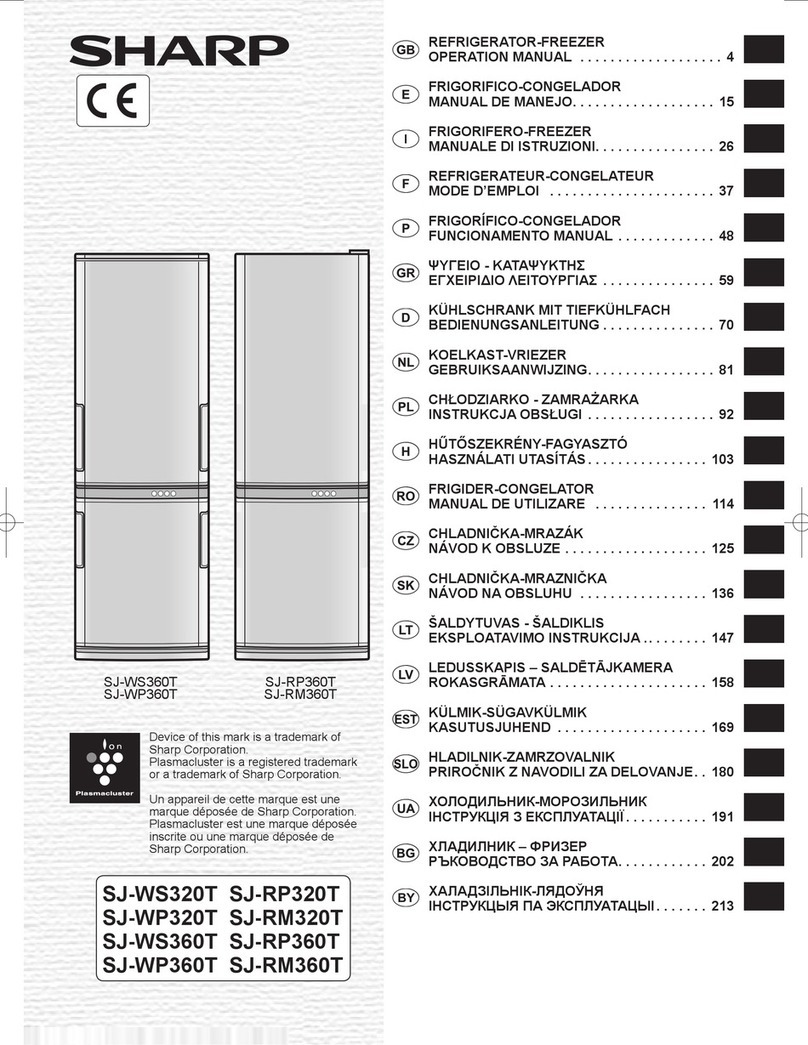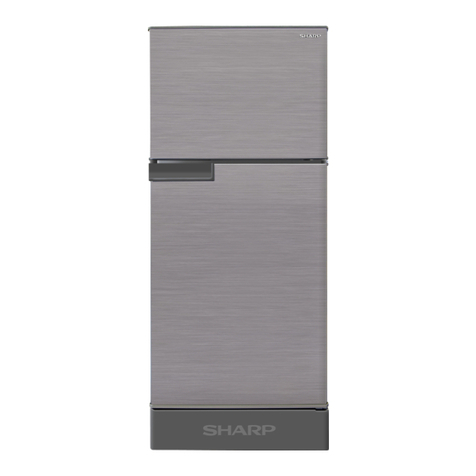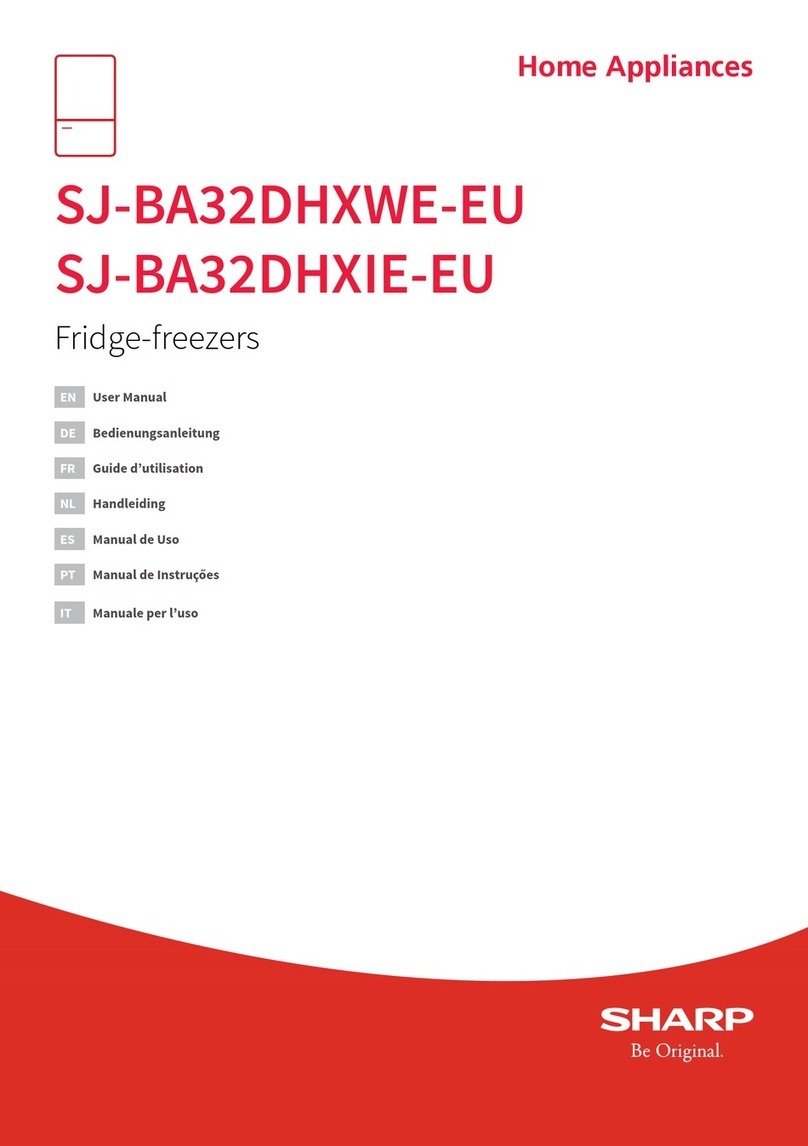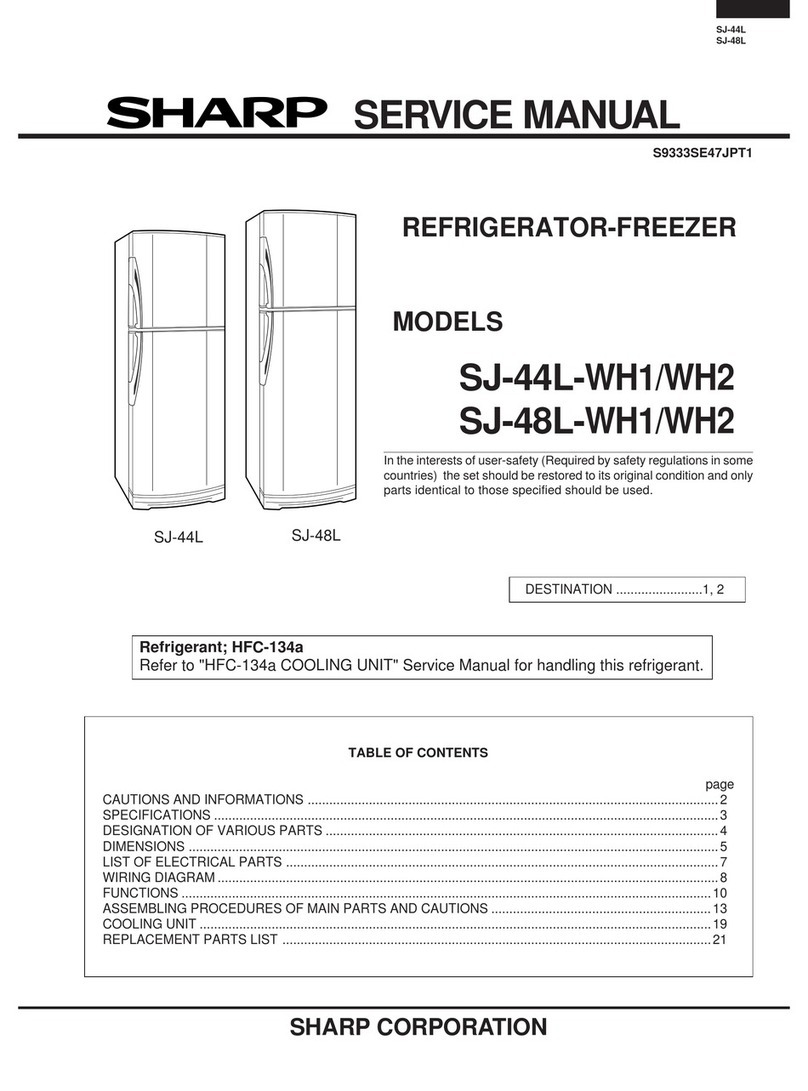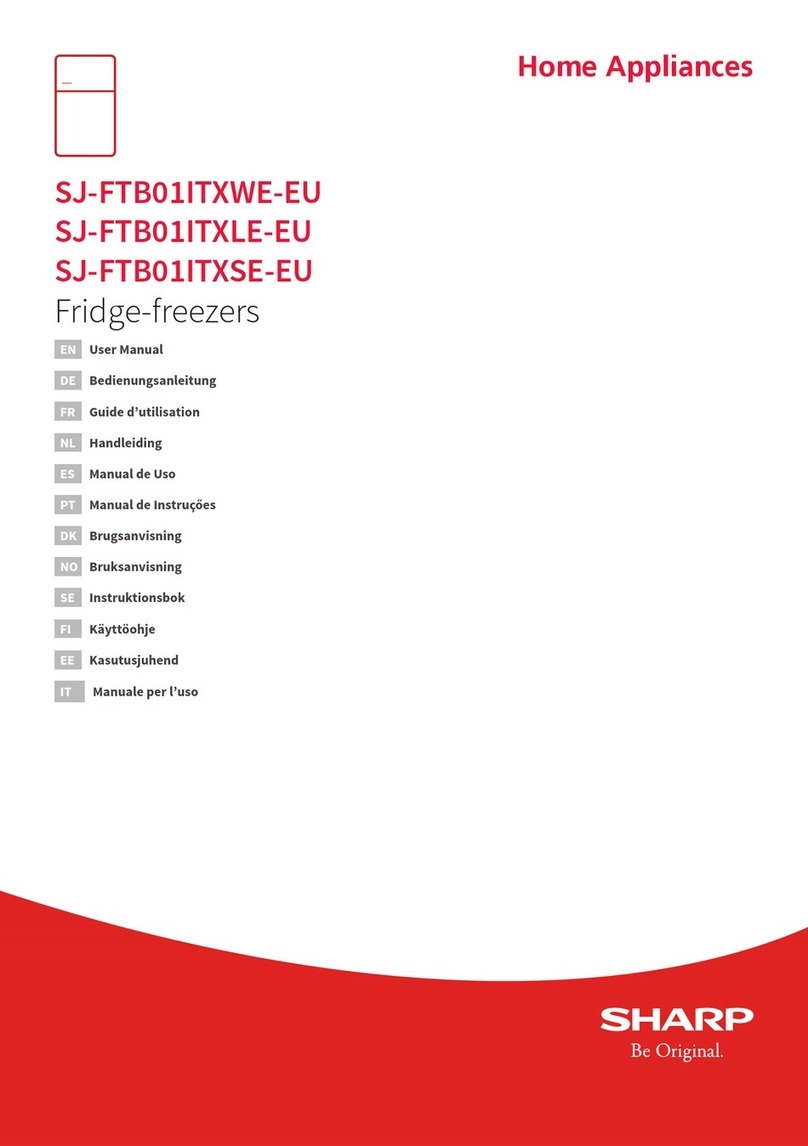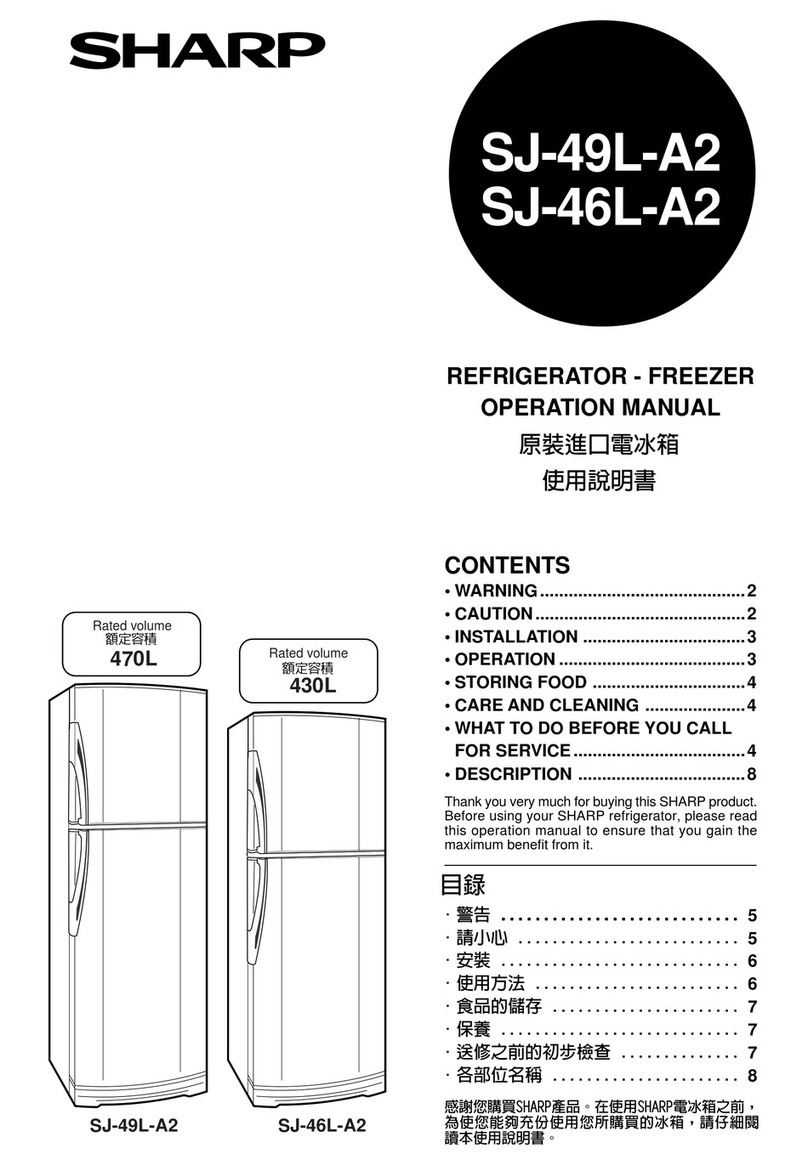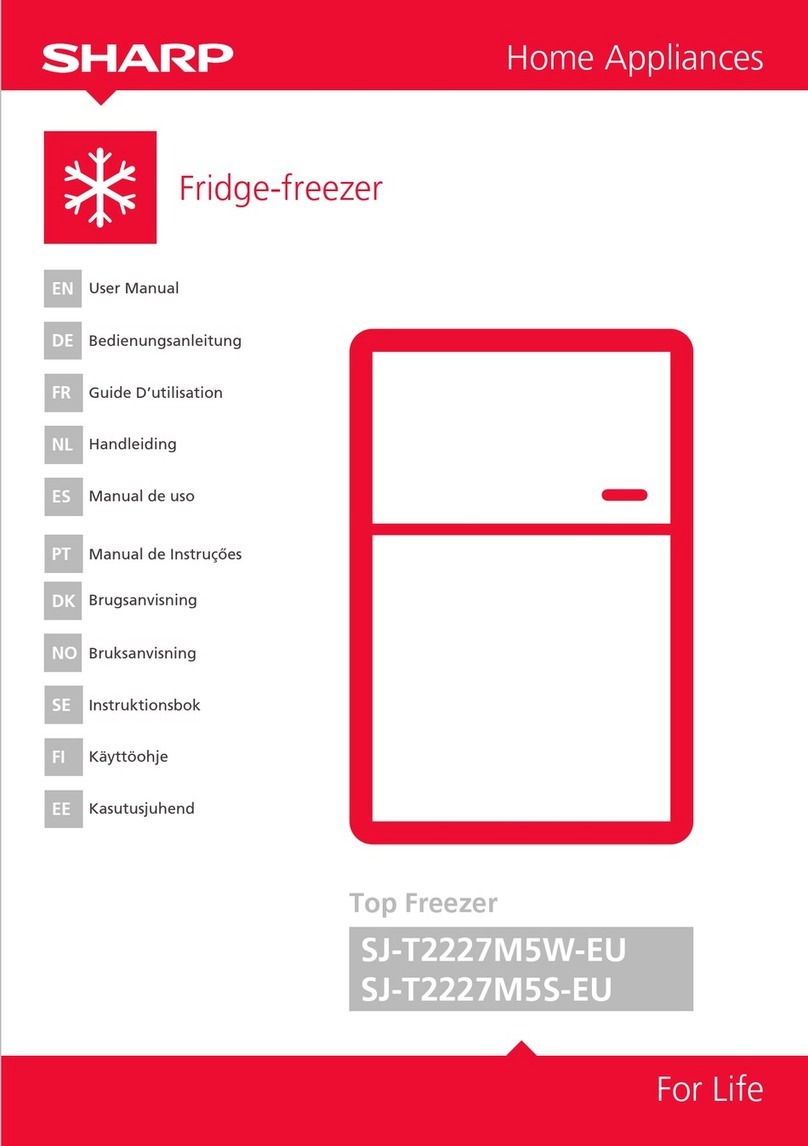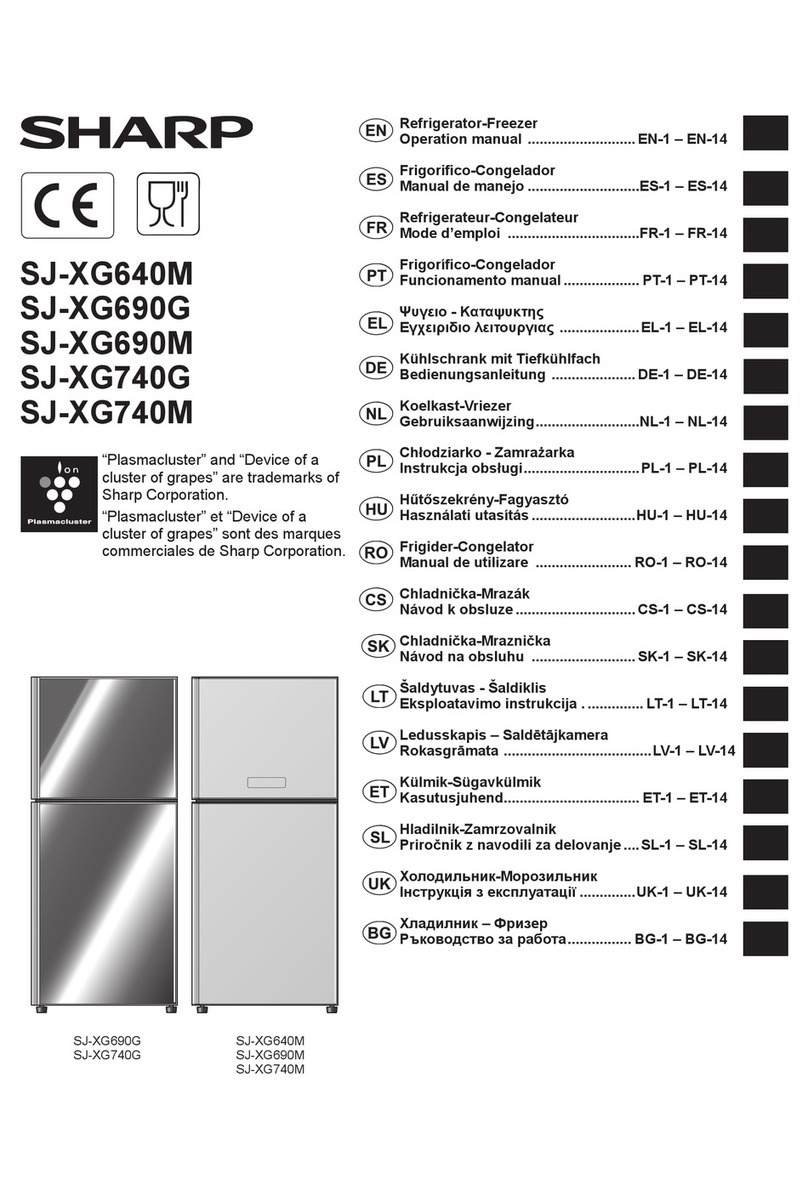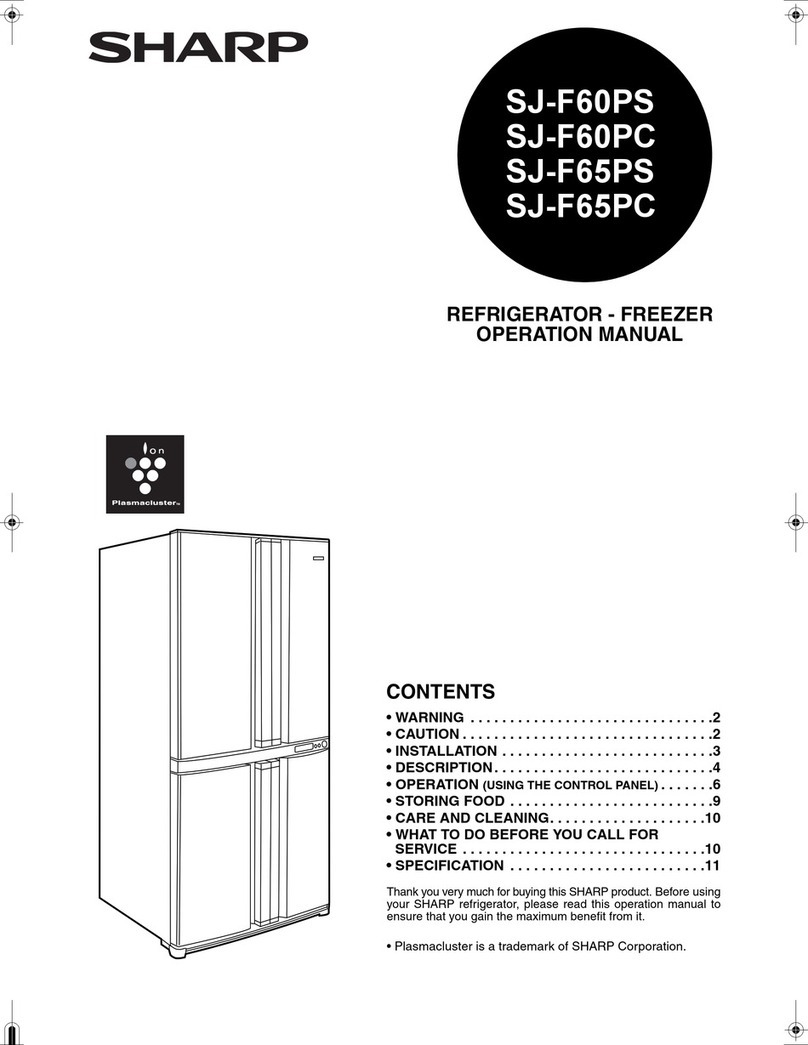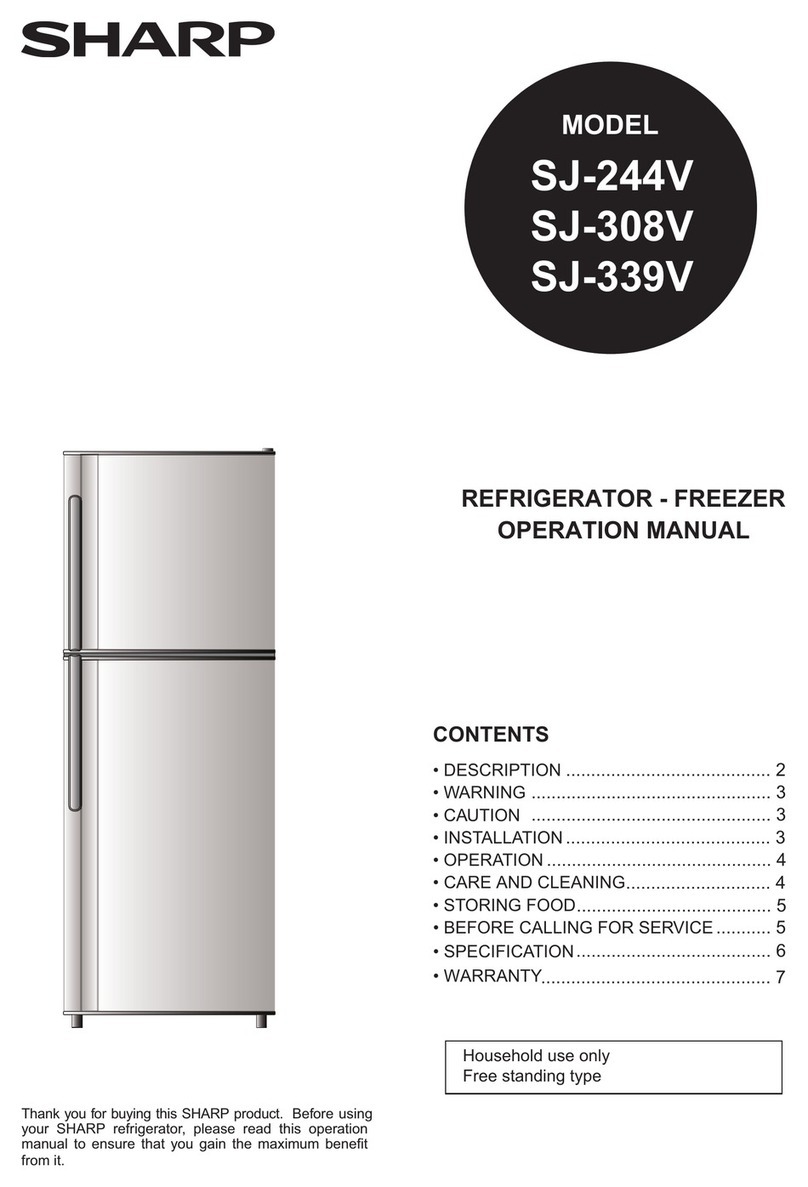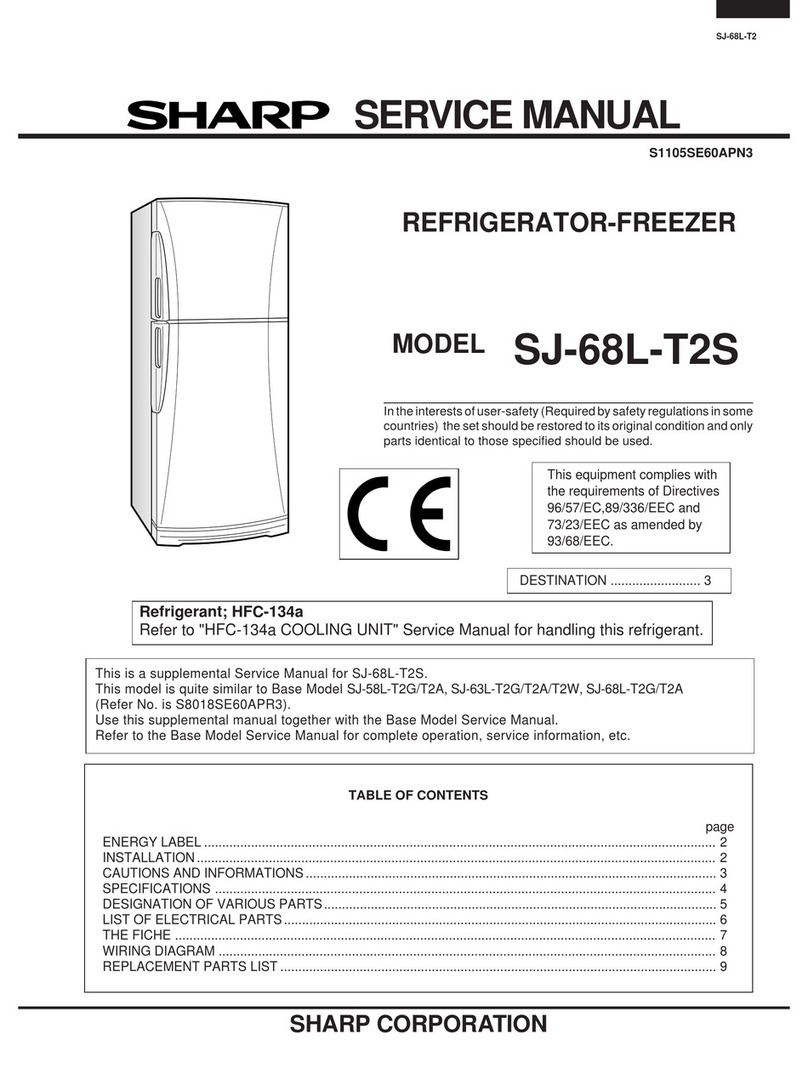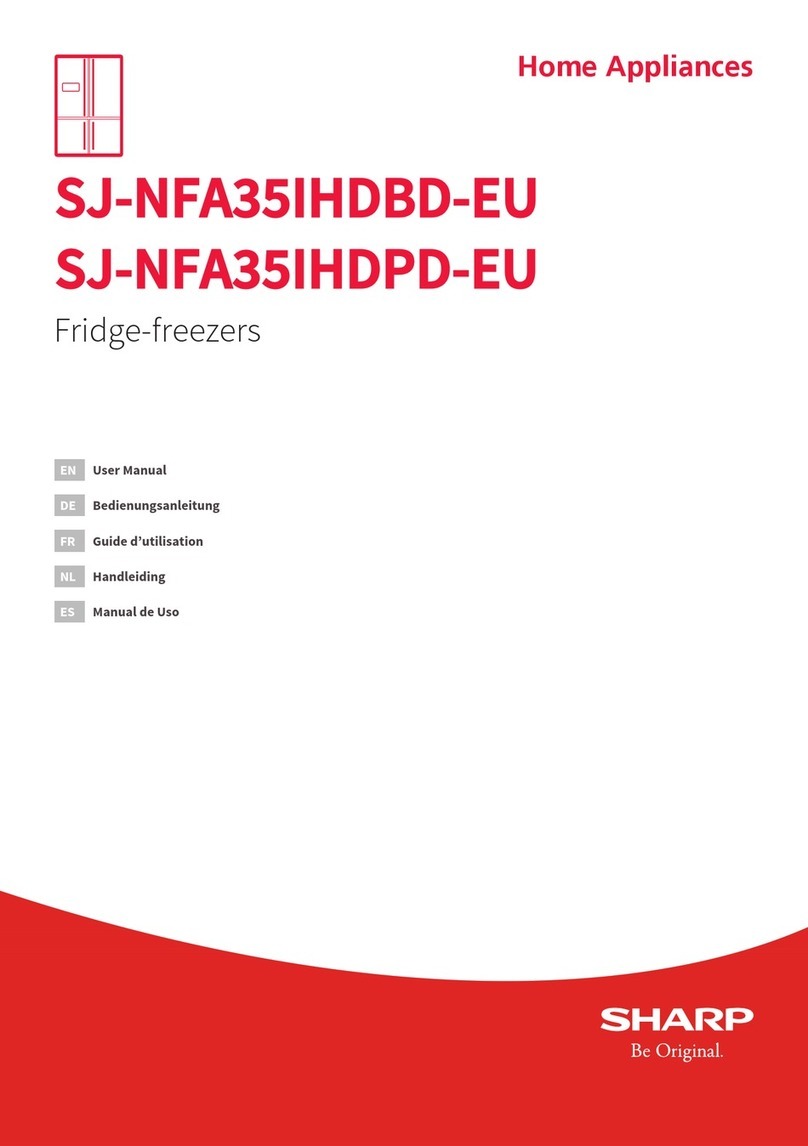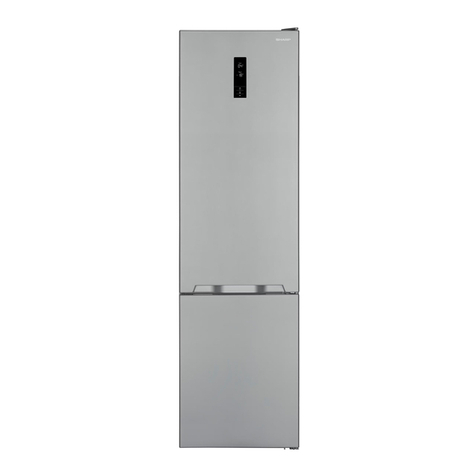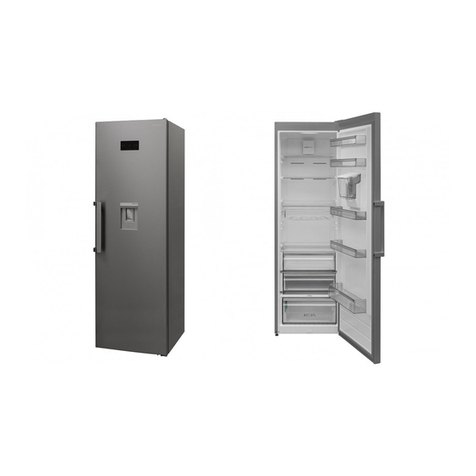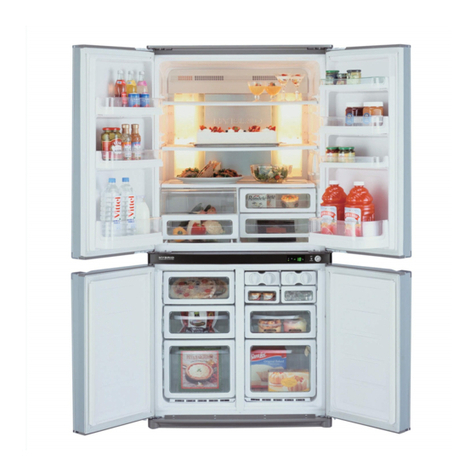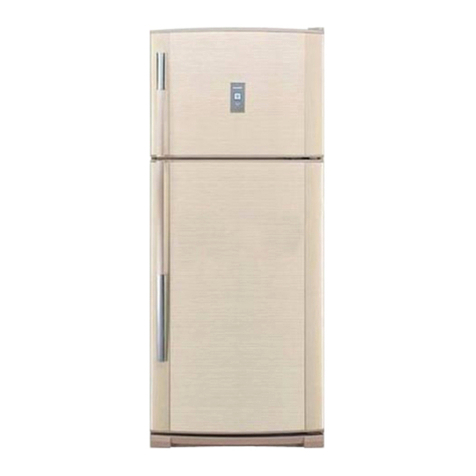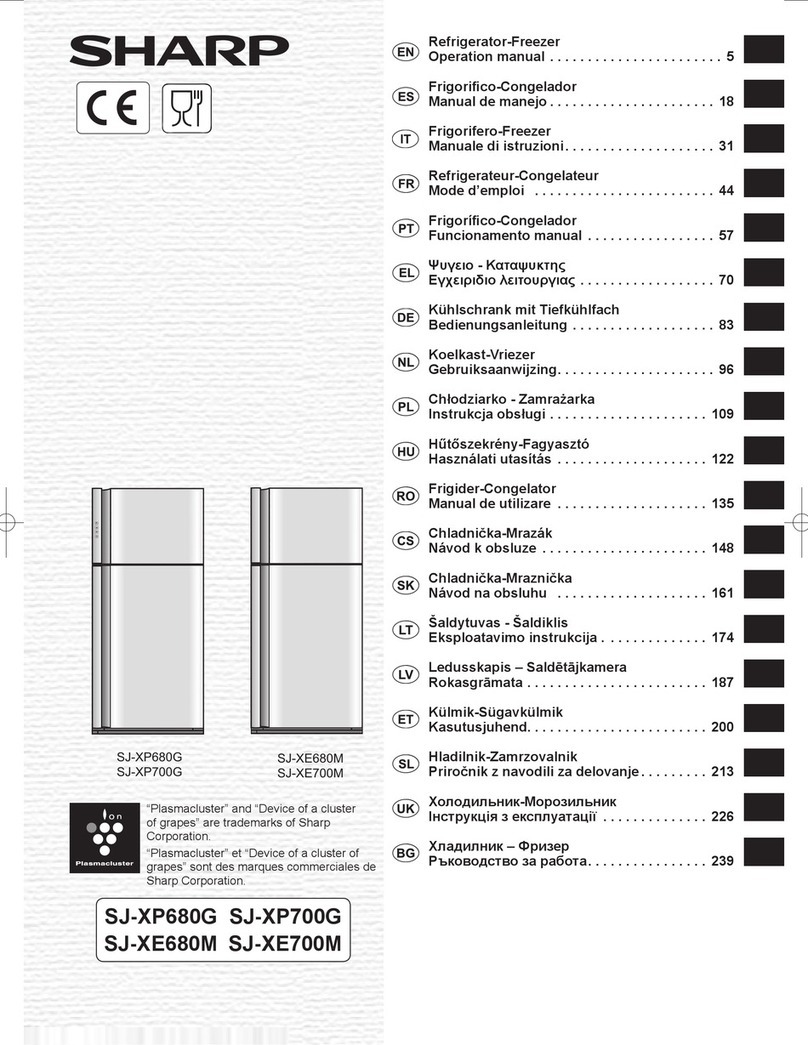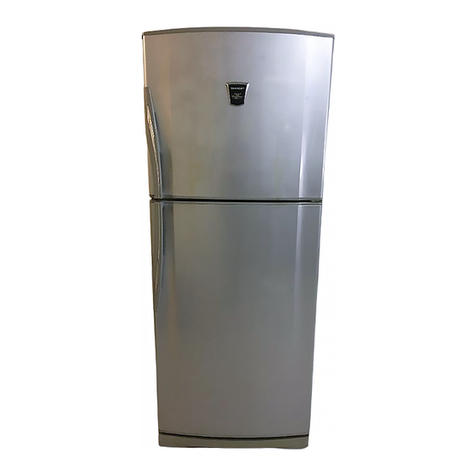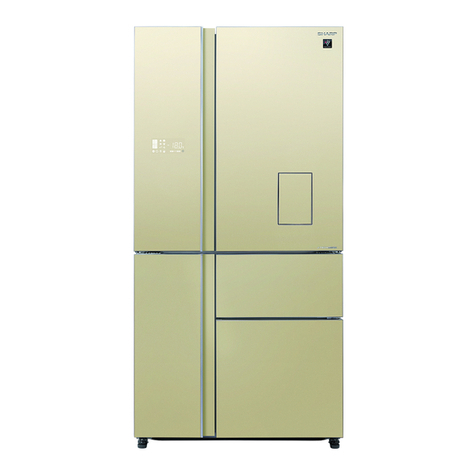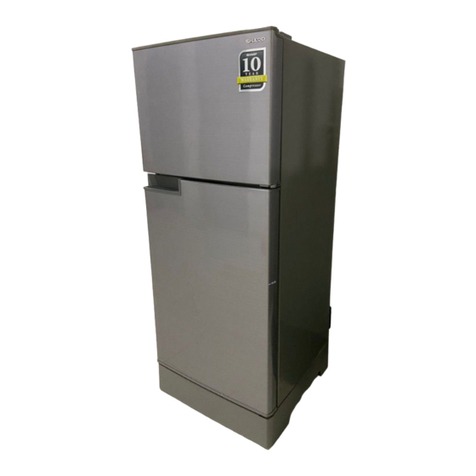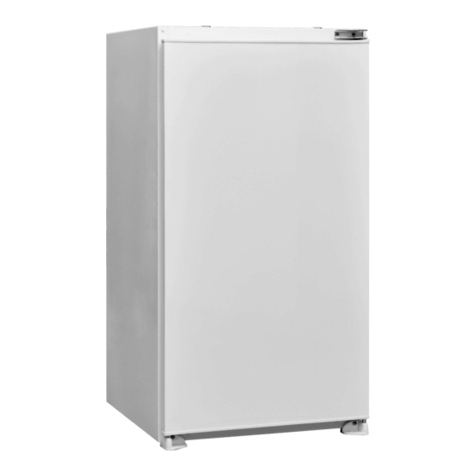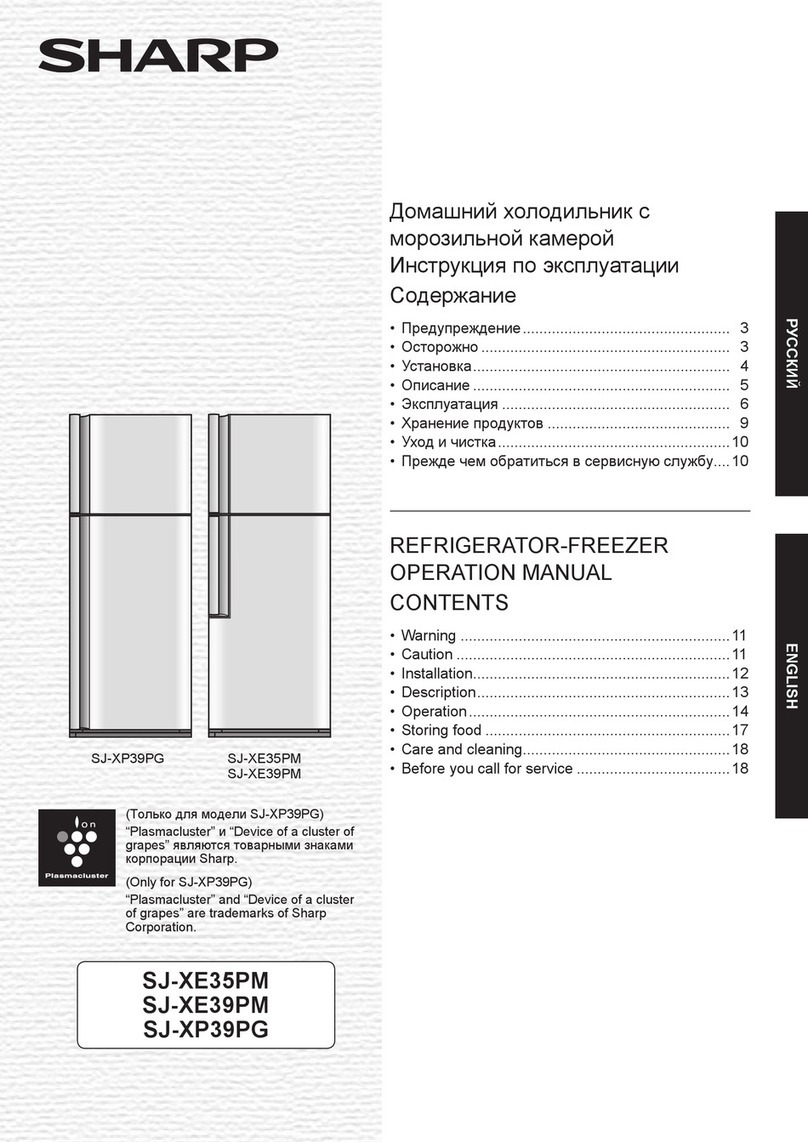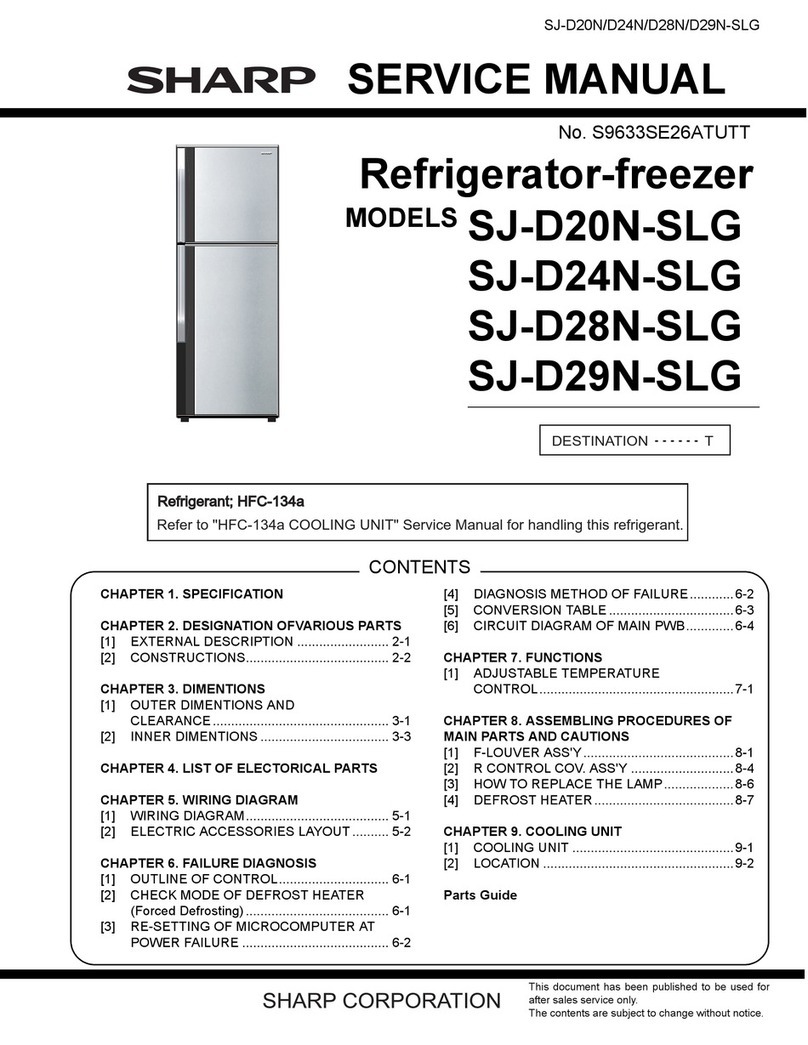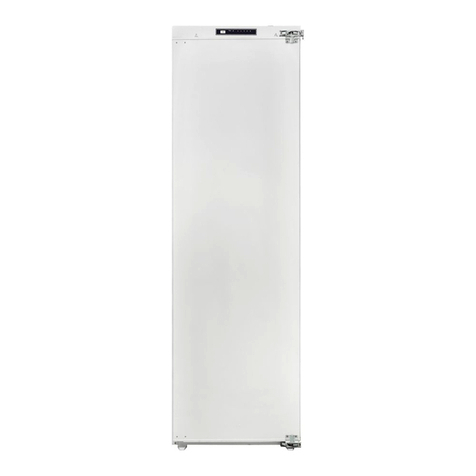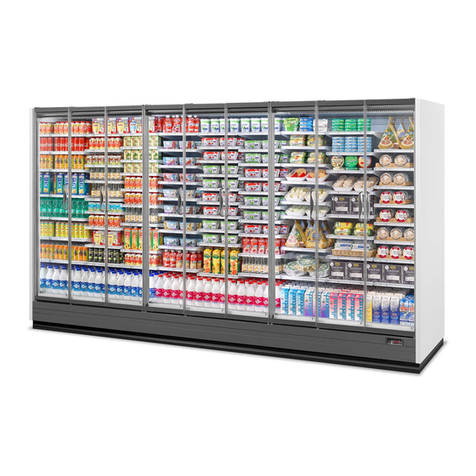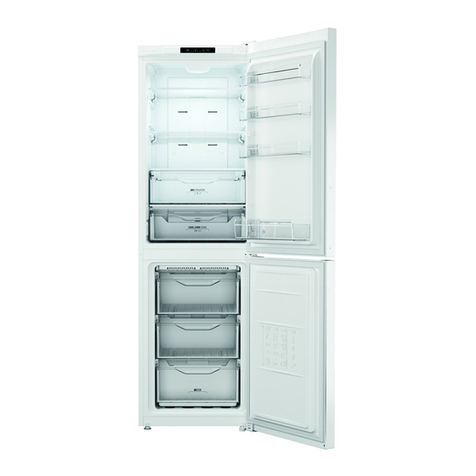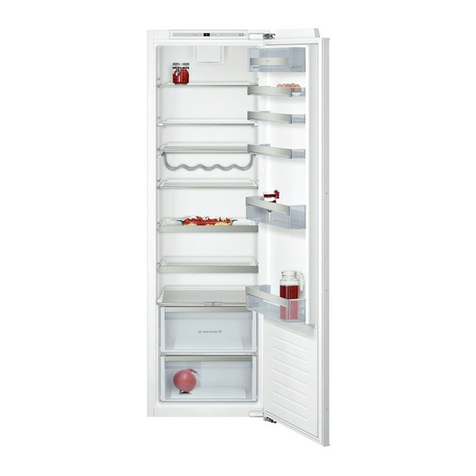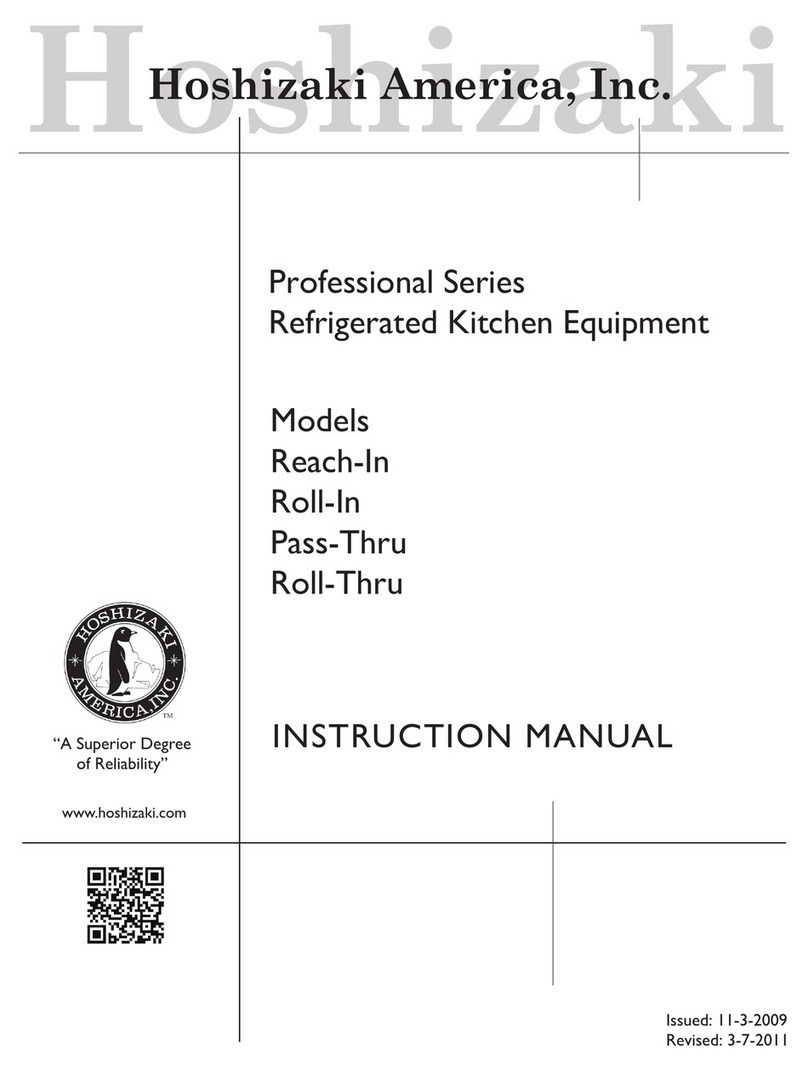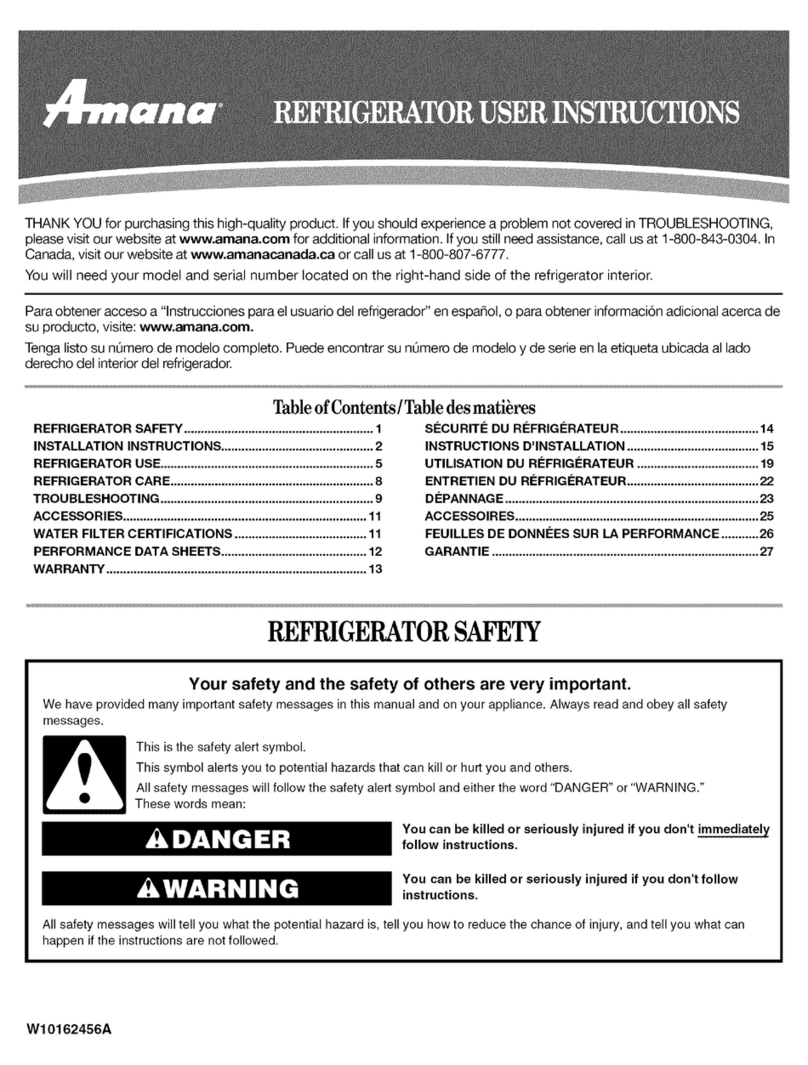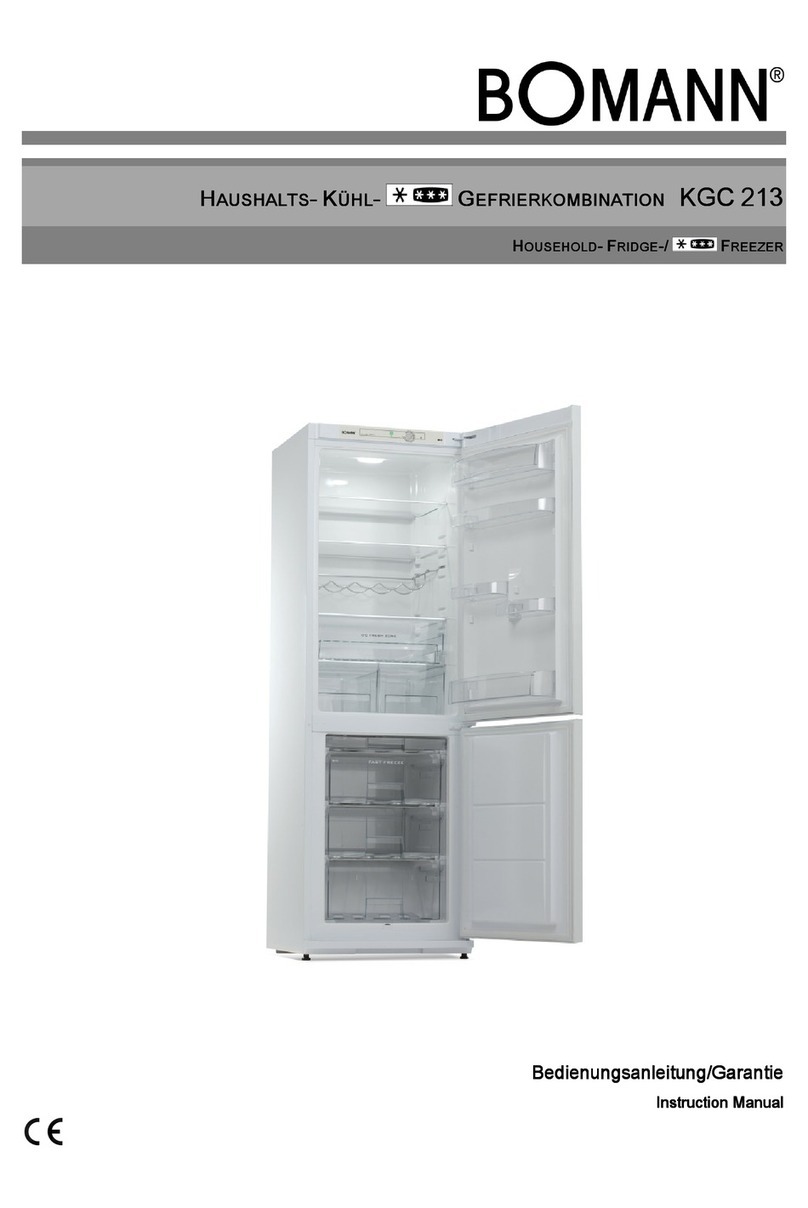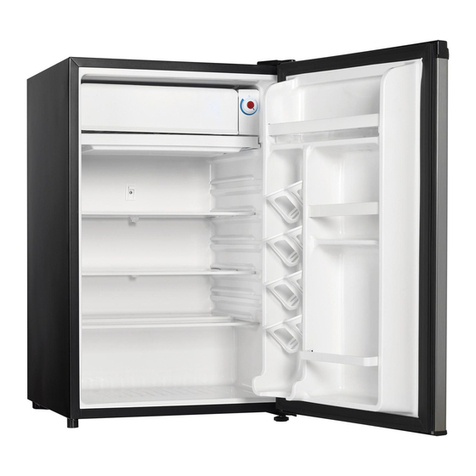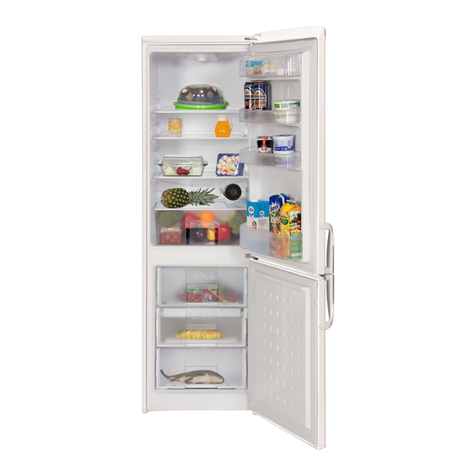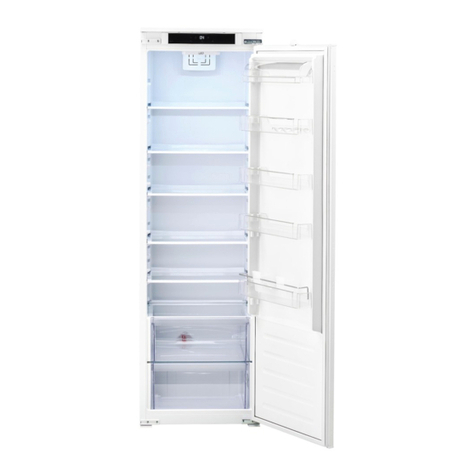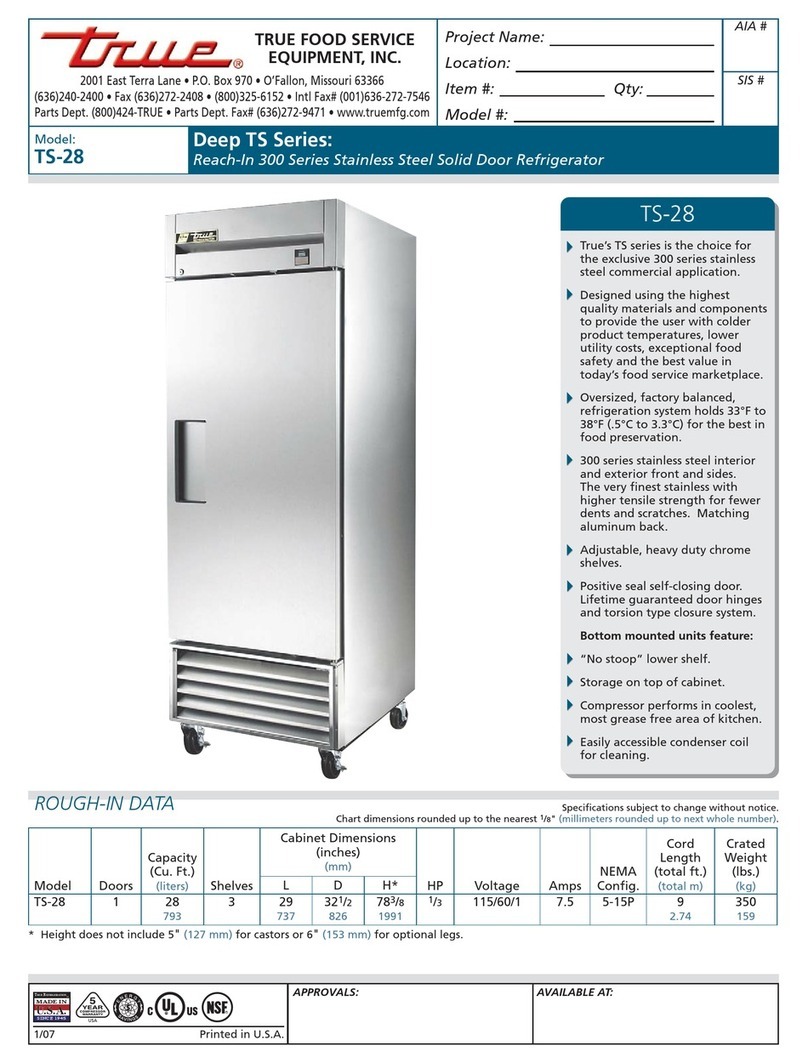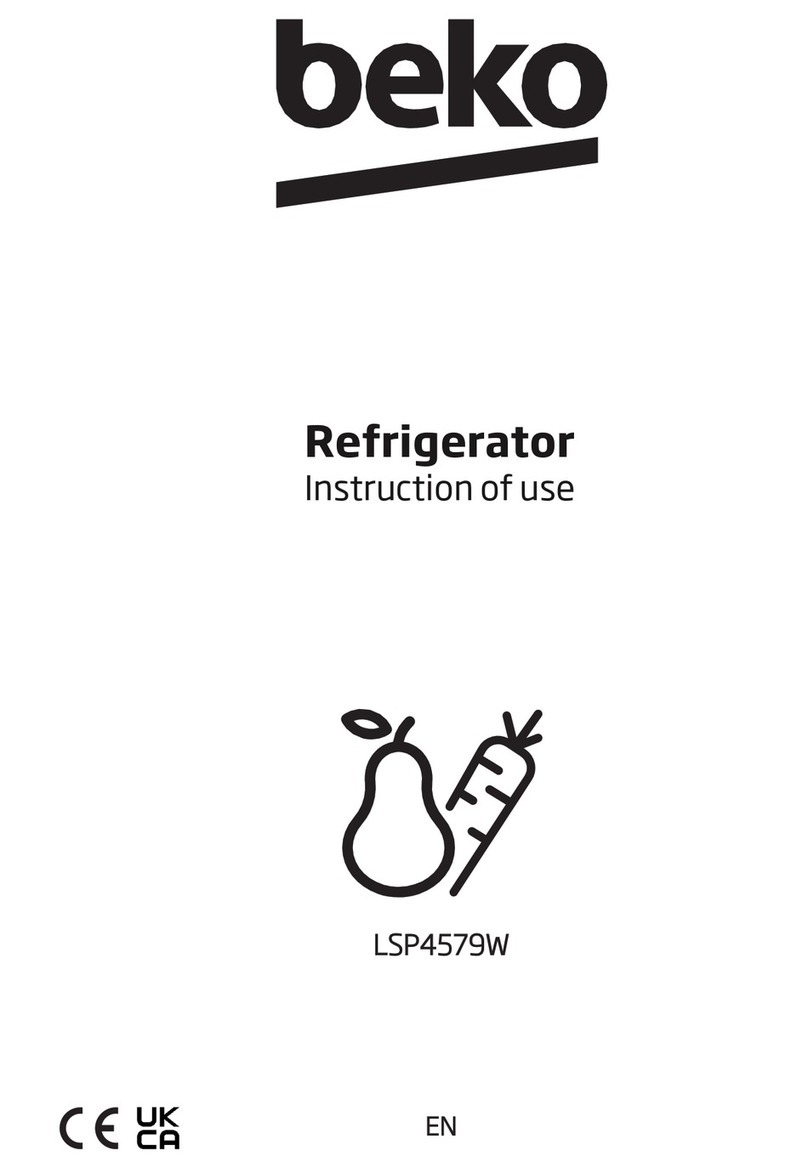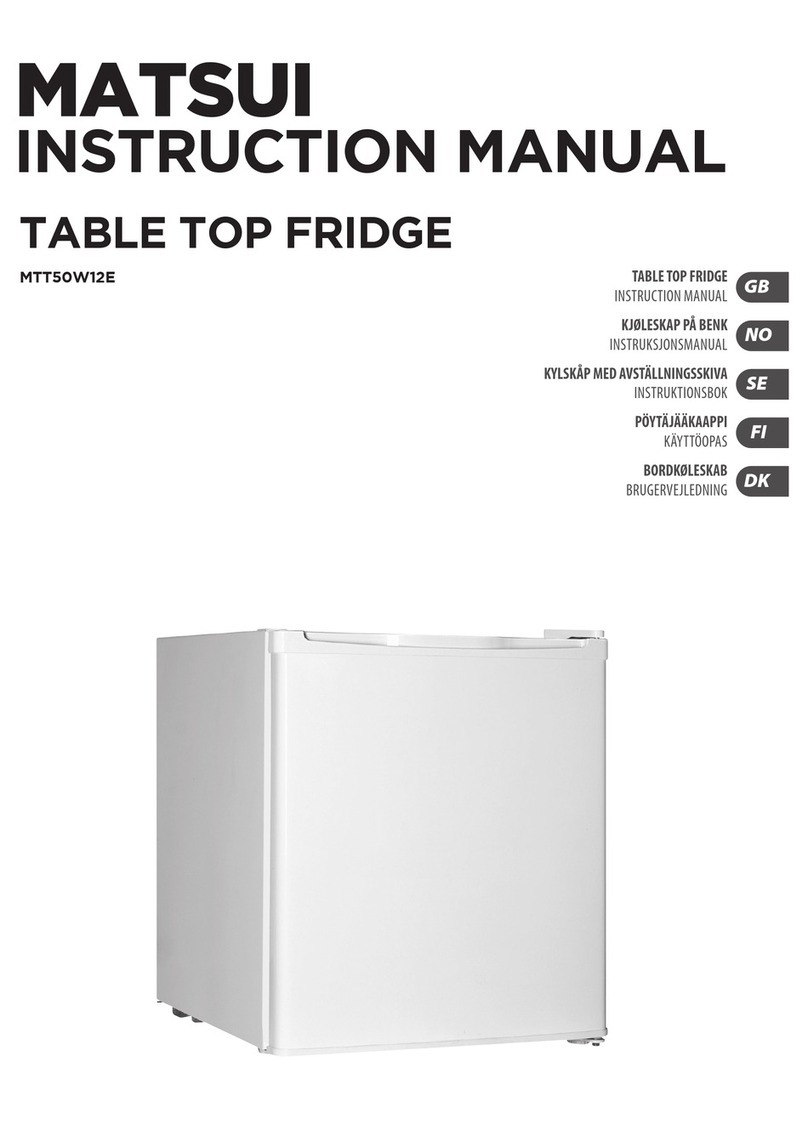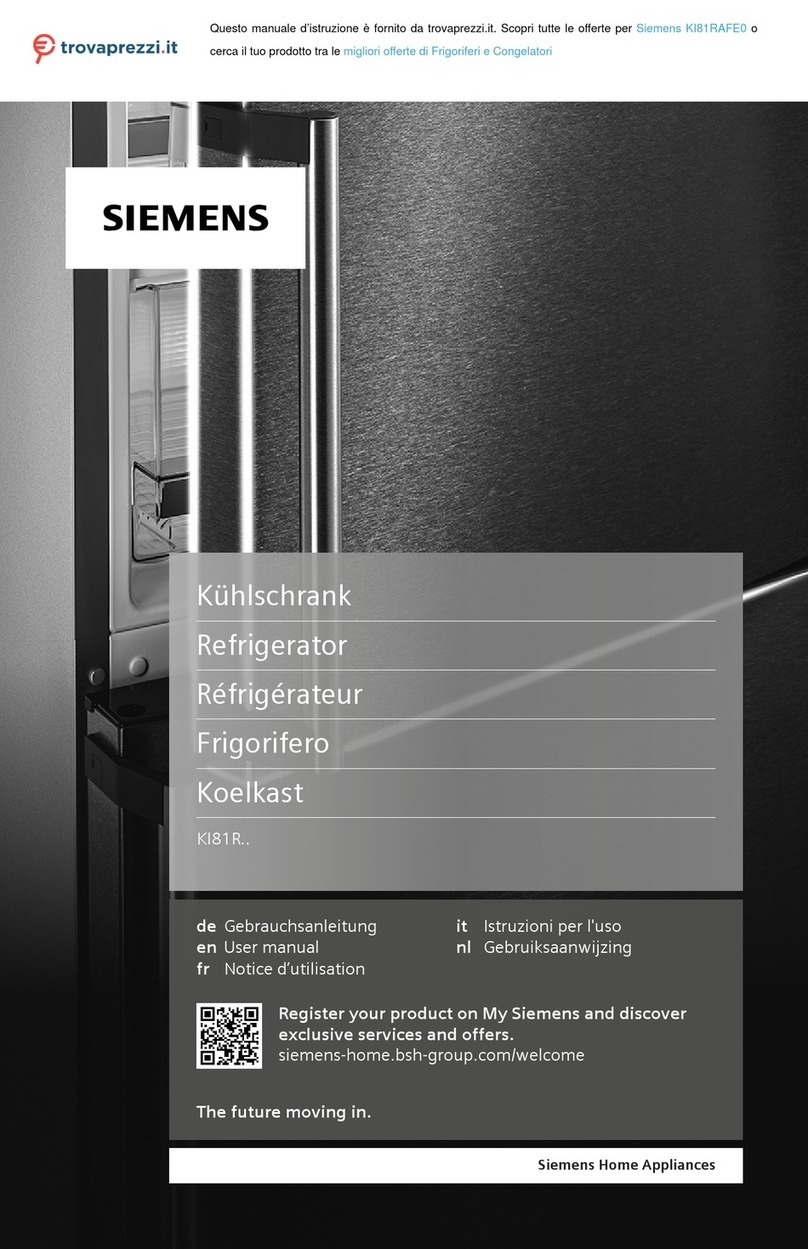
EN -8-
CHAPTER -3: USING YOUR FRIDGE
Fridge temperature settings
• The initial temperature of the Setting Display is 5°C.
• Press fridge setting button once.
• Every time you press the button, the setting temperature will increase. (2°C, 4°C, 5°C, 6°C, 8°C, super cooling)
• If you press fridge setting button until super cooling symbol is displayed on your fridge
- Settings Display and you do not press any button within the following 3 seconds,
- Super cooling will blink.
• If you keep on pressing, it will restart from last value.
Warnings for temperature settings
• The ambient temperature, temperature of the freshly stored food and how often the door is opened, aects the
temperature in the refrigerator compartment. If required,change the temperature setting.
• It is not recommended that you operate your fridge in environments colder than 10°C .
• The temperature setting should be set by taking into consideration how often the fridge door is opened and
closed, how much food is stored in the fridge and the environment in which and the positioning of the appliance.
• We recommend that when rst using the fridge it should be left running for 24 hours uninterrupted to ensure it
is completely cooled. Do not open the fridge door, or put food inside for this period.
• A 5 minute delay function is applied to prevent damage to the compressor of your fridge, when you take the plug
out and then plug it back in again after a power cut after 5 minutes.
• Your fridge is designed to operate in the ambient temperature intervals stated in the standards, according
to the climate class stated in the information label. It is not recommended that your fridge is operated in the
environments which are out of the stated temperature intervals in terms of cooling eciency.
• This appliance is designed for use at an ambient tem-perature within the 10°C - 43°C range.
Climate class and meaning:
T (tropical): This refrigerating appliance is intended to be used at ambient temperatures ranging from 16 °C to 43 °C.
ST (subtropical): This refrigerating appliance is intended to be used at ambient temperatures ranging from 16 °C to
38 °C.
N (temperate): This refrigerating appliance is intended to be used at ambient temperatures ranging from 16 °C to
32 °C.
SN (extended temperate): This refrigerating appliance is intended to be used at ambient temperatures ranging from
10 °C to 32 °C.
Temperature indicator
In order to help you better set your refrigerator, we have equipped it with a temperature indicator located in
the coldest area.
To better store the food in your refrigerator, especially in the coldest area, make sure the message “OK”
appears on the temperature indicator. If « OK » does not appear, this means temperature has not been set
properly
It may be dicult to see the indicator, make sure it is properly lit.Each time the temperature setting device is
changed, wait for the stabilisation of the temperature inside the appliance before proceeding, if necessary,
with a new temperature setting. Please change the position of the temperature setting device progressively and wait at
least 12 hours before starting a new check and potential change.
NOTE: Following repeated openings (or prolonged opening) of the door or after putting fresh food into the appliance,
it is normal for the indication “OK” not to appear in the temperature setting indicator. If there is an abnormal build up
of ice crystals of ice crystals (bottom wall of the appliance) on the refrigerator compartment, evaporator (overloaded
appliance, high room temperature, frequent door openings), put the temperature setting device on a lower position until
compressor o periods are obtained again.
Store food in the coldest area of the refrigerator.
Your foods will be better stored if you put them in the most appropriate cooling area. The
coldest area is just above the crisper.
The following symbol indicates the coldest area of your refrigerator.
To be sure to have a low temperature in this area, make sure the shelf is
located at the level of this symbol, as shown in the illustration.
The upper limit of the coldest area is indicated by the lower side of the
sticker (head of the arrow). The coldest area upper shelf must be at the same level with
the arrow head. The coldest area is below this level.
As these shelves are removable, make sure they are always at the same level with these
zone limits described on the stickers, in order to guarantee temperatures in this area.
OK
